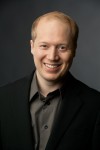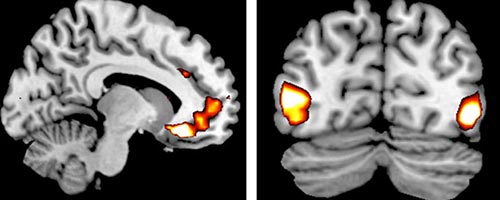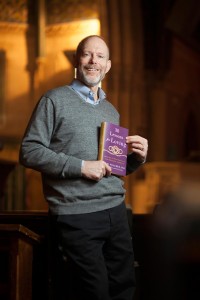OBSSR 20th Anniversary Video Competition – “I AM A BEHAVIORAL AND SOCIAL SCIENTIST”


Felix Thoemmes, an assistant professor in the Department of Human Development was part of team of researchers that examined the effect of taking a gap year before college on student persistence in college.
Reprinted from the Academy of Finland Communications, May 12, 2015
A gap year between high school and the start of university studies does not weaken young people’s enthusiasm to study or their overall performance once the studies have commenced. On the other hand, adolescents who continue to university studies directly after upper secondary school are more resilient in their studies and more committed to the study goals. However, young people who transfer directly to university are more stressed than those who start their studies after a gap year. These research results have been achieved in the Academy of Finland’s research programme The Future of Learning, Knowledge and Skills (TULOS).
“For young people, the transition from upper secondary school to further studies is a demanding phase in life, and many adolescents are tired at the end of upper secondary school. The demanding university admission tests take place close to the matriculation examination in Finland and require diligent studying from students. For many, a gap year offers an opportunity to take a break and think about future choices while developing a positive view of the future,” says Professor Katariina Salmela-Aro, the principal investigator of the study.
The transition period from secondary education to further studies is a key phase for the development of young people. It is a phase in which adolescents ponder over important future choices regarding educational directions and career goals.
The impact of a gap year on young people’s motivation to study and their future educational path was studied for the first time in the Academy of Finland’s research programme The Future of Learning, Knowledge and Skills. The research was conducted in Finland with the help of the FinEdu longitudinal study, which followed young people for several years after upper secondary school. A corresponding study was conducted concurrently in cooperation with Australian researchers among local youth in Australia.
“In the light of our research findings, a gap year between secondary education and further studies is not harmful, especially if the young person only takes one year off. When these adolescents are compared with those who continue their studies directly after upper secondary school, those who take a gap year quickly catch up with the others in terms of study motivation and the effort they put into their studies,” says Salmela-Aro.
If young people take more than one gap year, however, they may have more difficulties coping with the studies and with study motivation. “In the transition phase, many young people are left quite alone, which may make the transition to a new study phase quite challenging.”
According to the research results, those young people who begin their further studies directly after upper secondary school are more resilient in their studies and more committed to their goals than those who take a gap year. In addition, adolescents who continue their studies immediately after upper secondary school believe in their ability to achieve their goals more than those who start their studies after a gap year. On the other hand, they find studying and aiming for study goals more stressful than the students who take a gap year.
“The research results also suggest that students who take a gap year are slightly more susceptible to dropping out of university later on than those who transfer to university directly after upper secondary school,” says Salmela-Aro.
The study has been published in Developmental Psychology:
I wish I had (not) taken a gap-year? The psychological and attainment outcomes of different post-school pathways. Parker, Philip D.; Thoemmes, Felix; Duinevald, Jasper J.; Salmela-Aro, Katariina. Developmental Psychology, Vol 51(3), Mar 2015, 323–333. http://dx.doi.org/10.1037/a0038667
More information:
Academy of Finland Communications
Riitta Tirronen, Communications Manager
tel. +358 295 335 118
firstname.lastname(at)aka.fi
 Scholars funded through the Institute for the Social Sciences’ small grant program this spring seek to answer such questions as, how do economic crises affect voters’ behavior, and how do public perceptions of social inequality influence efforts to mobilize cooperative solutions to climate change?
Scholars funded through the Institute for the Social Sciences’ small grant program this spring seek to answer such questions as, how do economic crises affect voters’ behavior, and how do public perceptions of social inequality influence efforts to mobilize cooperative solutions to climate change?
Twice yearly, the Institute for the Social Sciences (ISS) provides up to $12,000 to tenured and tenure-track faculty through its peer-reviewed small grant program. This spring, faculty from six different colleges won awards.
“One of the strengths of the program is that it forges interdisciplinary connections across campus, both in the traditional strongholds of the social sciences and units where scholars are working at the boundaries of social sciences, humanities and life sciences,” said Kim Weeden, professor of sociology and the Robert S. Harrison Director of ISS.
One of these boundary-spanning projects is a collaborative effort between Malte Jung and Steven Jackson, both in Computing and Information Sciences, and a surgical team at Weill Medical College in New York City. They will compare robotic and laparoscopic surgical teams.
Christopher Huckfeldt, assistant professor in economics, is calibrating a macroeconomic model of unemployment with data from the Panel Study of Income Dynamics. He is applying quantitative macroeconomic theory to assess the importance of occupational downgrading in generating permanent income losses for workers who lose their job during a recession.
“The ISS grant has put me on a faster track to accomplish the research goals associated with my project. As a junior faculty member, this type of grant is invaluable for establishing a long-term research agenda,” Huckfeldt said.
Claire Lim, assistant professor in economics, is looking at how deregulation, mergers and acquisitions, and changes in regulators’ ideology, have affected executive compensation in the domestic energy industry. She’s also examining how political environments in the U.S. influence the regulation and conduct of energy firms.
Using the Charles Manson murders and subsequent trials in the early 1970s as a stage, Claudia Verhoeven, associate professor in history, hopes to invigorate the historiography through analysis of gender, class, race, geo-politics, pop and mass culture, social movements, religion, the justice system, mass media and militant environmentalism. She intends to properly situate the case in the context of the late 1960s, and provide it with a reception history – a history of the way events were portrayed and perceived at the time.
Jonathon Schuldt, assistant professor of communication, will use his ISS grant to study how socioeconomic status influences beliefs and intentions to address and mitigate climate change.
Alexander Kuo, assistant professor of government, will use the grant to conduct surveys before and after the 2015 national elections in Spain to analyze how an economic crisis affects voter behavior and supports new political movements.
The ISS’ small grants program also is supporting two upcoming conferences.
Trevor Pinch and collaborators Michael Lynch and Bruce Lewenstein, all from science and technology studies, are using ISS funds to support a 2016 conference to take stock of the field of science and technology studies, what it has accomplished and where it is headed.
Another conference, led by Gustavo Flores-Macias, assistant professor in government, is bringing together leading scholars on the political economy of Latin America in a conference to address taxation and its importance to inequality and economic development.
Other recipients of spring 2015 small grants include Adam Anderson, associate professor in human development; Garrick Blalock, associate professor in the Dyson School of Applied Economics and Management; John Forester, professor in city and regional planning; Karel Mertens, associate professor of economics; David Mimno, assistant professor in information science; and Luo Zuo, assistant professor of accounting.
The deadline for the fall 2015 small grants competition is Sept. 8, and applications will be requested shortly after the fall semester begins.
Lori Sonken is the staff writer for the Institute for the Social Sciences.

As research subjects viewed emotion-laden pictures while an fMRI (functional magnetic resonance imagining) machine scanned their brains for activity, researchers in a Cornell-University of British Columbia-University of Toronto study began to think: Perhaps our genes really can regulate response to emotional information.
Carriers of a genetic variation (the ADRA2b deletion variant) showed more vivid perceptions of emotional events (called emotionally enhanced vividness or EEV), which was associated with more activity in a region of the brain responsible for regulating emotions and evaluating pleasure and threat (the ventromedial prefrontal cortex), researchers reported in the April 22 Journal of Neuroscience.
The 2014 study was a relatively small one, with 39 subjects undergoing fMRI scans at the University of Toronto. Slightly more than half (21) carried the ADRA2b deletion variant, and the rest did not. But the result was clear. Some people are genetically wired, as the researchers report, to “enhance the subjective vividness of perceptual experience and its emotional enhancement.”
“Emotions are not only about how we feel about the world, but how our brains construct our perception of it,” says Adam K. Anderson, Cornell associate professor of human development and the study’s senior author.
“Our genes influence how our brains see the positive and negative aspects of our world more vividly. As a result, we may come to mistakenly believe the world has more rewards or threats.” “People really do see the world differently,” said Rebecca Todd, first author and assistant professor of psychology at the University of British Columbia. “For people with this gene variation, the emotionally relevant things in the world stand out much more.”
Todd said she believes emotionally enhanced vividness may help explain why some people are more susceptible to PTSD (post-traumatic stress disorder) and intrusive memories following trauma.
The report is titled “Neurogenic Variations in Norepinephrine Availability Enhance Perceptual Vividness.” The study was supported, in part, by the Canadian Institutes of Health Research.

With wedding season in full swing, America’s newlyweds stand to learn from the experts: older adults whose love has endured job changes, child-rearing, economic certainty, health concerns and other life challenges.
Filling our knowledge gap on finding a mate and remaining married, Cornell gerontologist Karl Pillemer completed the Cornell Marriage Advice Project, the largest in-depth interview study ever done of people in very long unions, surveying more than 700 individuals wedded for a total of 40,000 years. The findings are detailed in Pillemer’s book, “30 Lessons for Loving: Advice from the Wisest Americans on Love, Relationships, and Marriage.”
To capture the voice of lived experience, Pillemer conducted a random national survey of nearly 400 Americans age 65 and older, asking how to find a compatible partner and other advice on love and relationships. In subsequent in-person interviews with more than 300 long-wedded individuals – those in unions of 30, 40, 50, or more years – Pillemer captured more insights for overcoming common marriage troubles. His team interviewed divorced individuals, too, asking how others might avoid marital breakups.
The average age of interviewees was 77 and included 58 percent women and 42 percent men. The average length of marriage in the sample was 44 years; the couple with the longest marriage were ages 98 and 101 and had been married 76 years. Responses were coded into the most commonly occurring recommendations, resulting in a list of the most frequently selected lessons for a successful, long-term relationship.
“Rather than focus on a small number of stories, my goal was to take advantage of the ‘wisdom of crowds,’ collecting the love and relationship advice of a large and varied cross-section of long-married elders in a scientifically reliable and valid way,” said Pillemer.
Pillemer uncovered common advice for couples walking down the aisle or decades into marriage. The top five lessons from the elders, along with Pillemer’s analysis:
Learn to communicate: “For a good marriage, the elders overwhelmingly tell us to ‘talk, talk, talk.’ They believe most marital problems can be solved through open communication, and conversely many whose marriages dissolved blamed lack of communication.”
Get to know your partner very well before marrying: “Many of the elders I surveyed married very young; despite that fact, they recommend the opposite. They strongly advise younger people to wait to marry until they have gotten to know their partner well and have a number of shared experiences. An important part of this advice is a lesson that was endorsed in very strong terms: Never get married expecting to be able to change your partner.”
Treat marriage as an unbreakable, lifelong commitment: “Rather than seeing marriage as a voluntary partnership that lasts only as long as the passion does, the elders propose a mindset in which it is a profound commitment to be respected, even if things go sour over the short term. Many struggled through dry and unhappy periods and found ways to resolve them – giving them the reward of a fulfilling, intact marriage in later life.”
Learn to work as a team: “The elders urge us to apply what we have learned from our lifelong experiences in teams – in sports, in work, in the military – to marriage. Concretely, this viewpoint involves seeing problems as collective to the couple, rather than the domain of one partner. Any difficulty, illness, or setback experienced by one member of the couple is the other partner’s responsibility.”
Chose a partner who is very similar to you: “Marriage is difficult at times for everyone, the elders assert, but it’s much easier with someone who shares your interests, background and orientation. The most critical need for similarity is in core values regarding potentially contentious issues like child-rearing, how money should be spent and religion.”
According to Pillemer, “These unique insights show the value of using rigorous survey methods to uncover the practical wisdom of older people. Although a number of general studies of elder wisdom have been conducted, no one had researched the specific advice elders have for a critical life domain like marriage. Therefore, the study points the way toward the need for future research on concrete lessons we learn over the course of our lives.”
HD TODAY e-NEWS is a quarterly digest of cutting-edge research from the Department of Human Development, College of Human Ecology, Cornell University. Explore the HD Today e-NEWS website at https://hdtoday.human.cornell.edu/ and discover a wide range of resources:
This website is maintained by Human Development Outreach & Extension led by Valerie Reyna, Human Development Professor and Department Extension Leader. HD Today e-News is supported by Smith-Lever funds from the National Institute of Food and Agriculture (NIFA), U.S. Department of Agriculture. Any opinions, findings, conclusions, or recommendations expressed in this publication are those of the authors and do not necessarily reflect the views of the U.S. Department of Agriculture.
Please send questions or comments to us:
Valerie Reyna, Department Extension Leader vr53@cornell.edu
Allison Hermann, Ph.D., Extension Support
amh352@cornell.edu
Department of Human Development
College of Human Ecology
Cornell University
Martha Van Rensselaer Hall
Ithaca, NY 14853-4401
Phone: (607) 255-7735